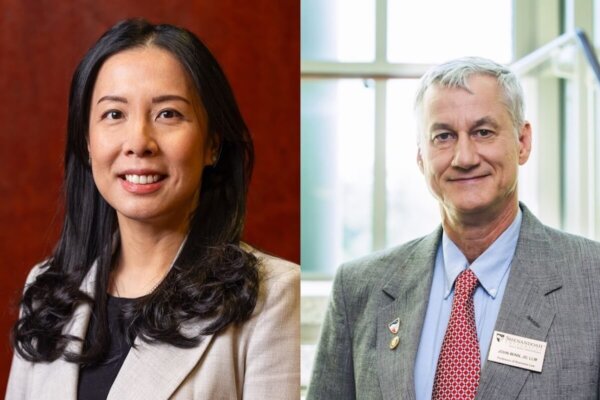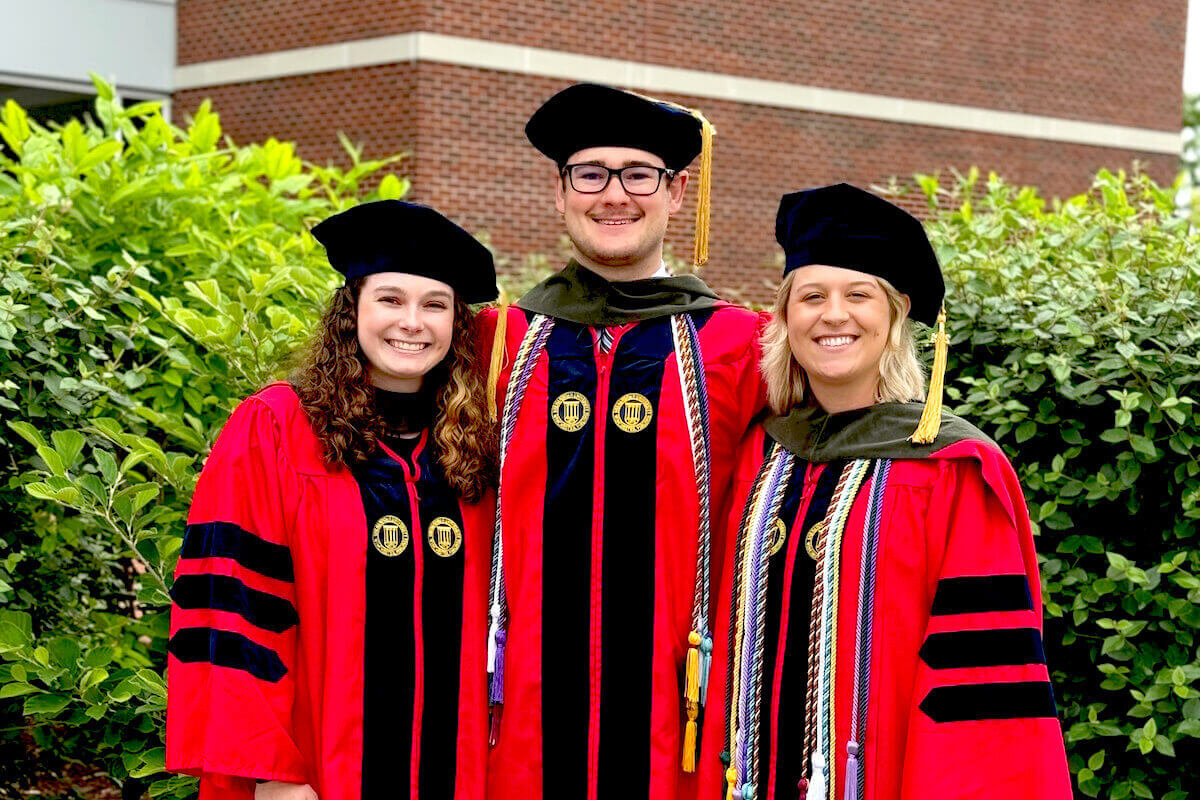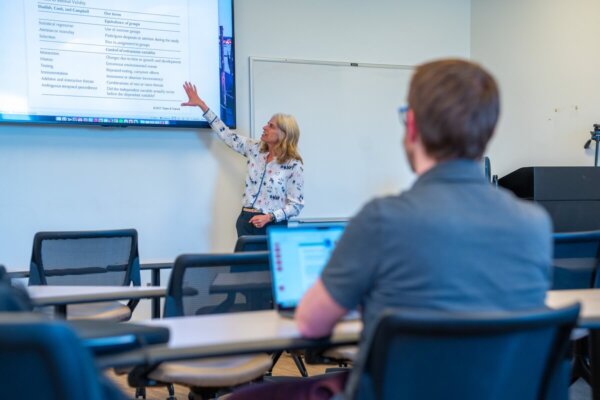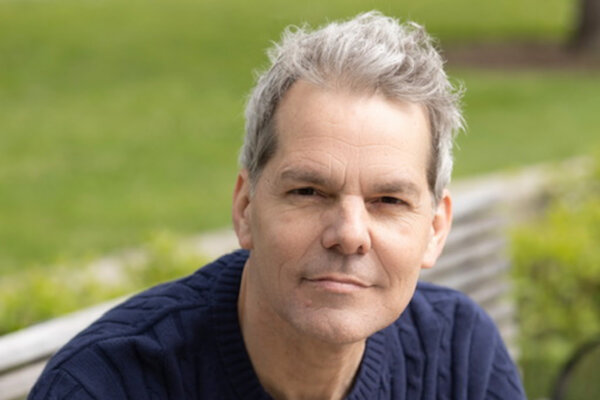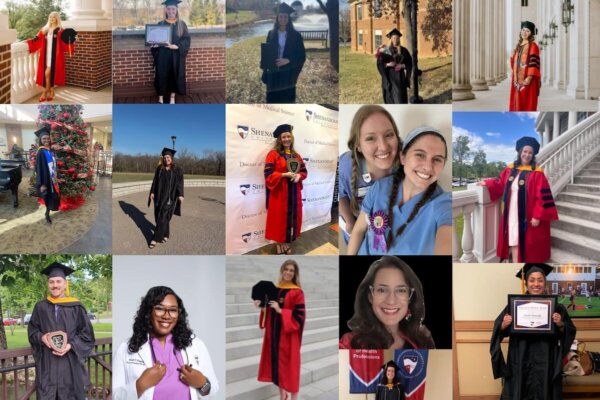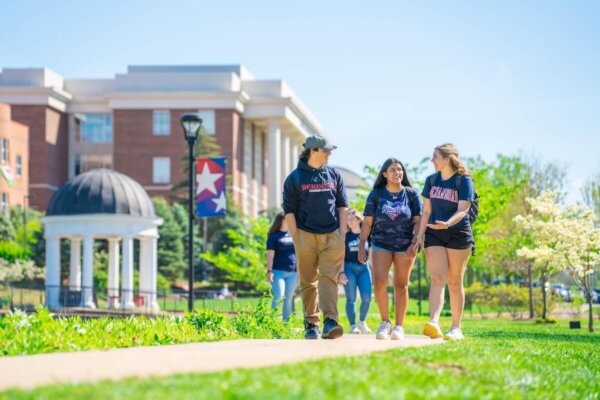Chasing Down a Dream
Woman crosses thousands of miles to become a Shenandoah PA student
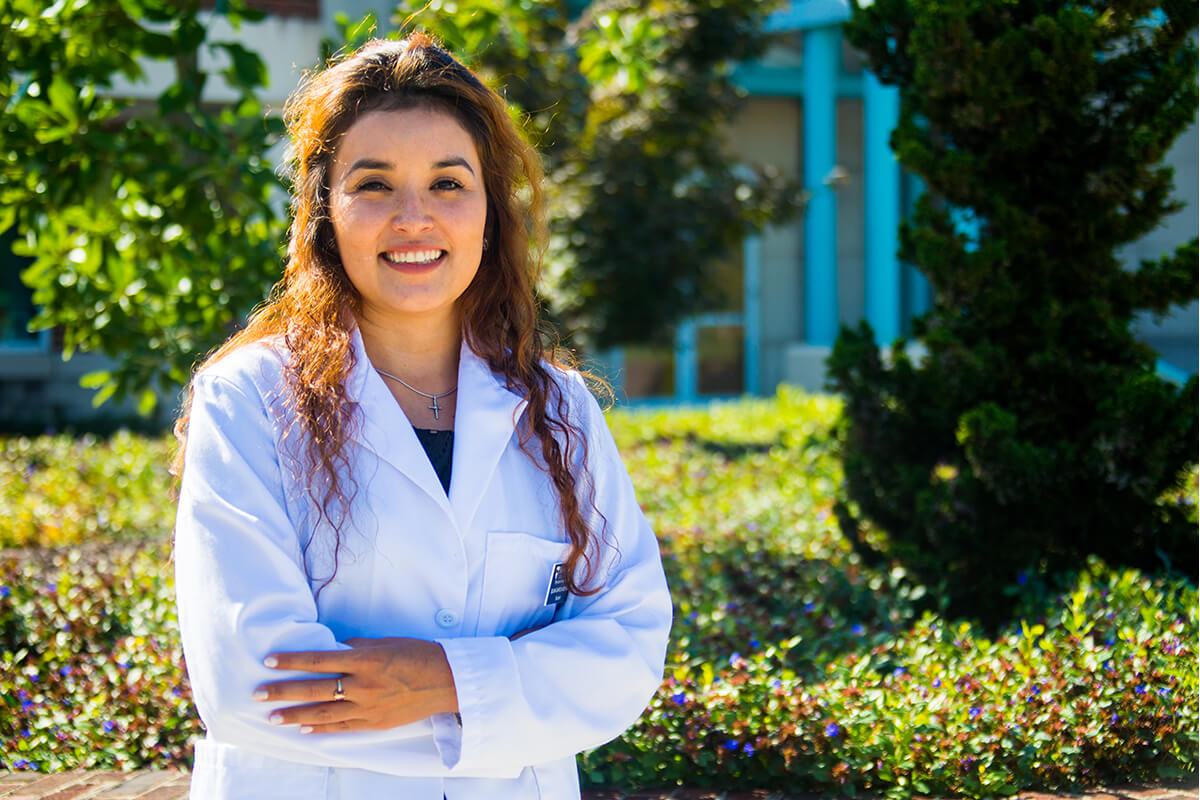
Silvia Garcia Murcia traveled thousands of miles—sleeping in the desert, crawling through cacti, and experiencing life inside a detention center and maximum security prison—to finally become a graduate physician assistant (PA) student at Shenandoah University.
Murcia, a 26-year-old first-year PA student, started at Shenandoah in July and will graduate in 2020.
Murcia was born in a village of 200 people nestled among the mountains of Honduras. There was no television or electricity, and communication with the larger world was sparse.
But Murcia was a curious little girl who would often sit on a hill in her village and wonder what was beyond the mountains.
“I was always really curious,” she said. “I wanted to know everything. I always asked myself questions.”
Murcia’s desire to help others through medicine started when she was young and her grandfather became ill. To “cure” him, she made him tortillas the size of pills.
He said one day I was going to be a doctor and he was going to be my first patient. It stayed in my head and never went away.”
When she was 8 years old, Murcia left her hometown to move to a neighboring village that offered school past the sixth grade.
Around the age of 15, she earned a scholarship to go to medical school in Cuba, but she couldn’t afford the $500 flight. She was beyond devastated. A day later, she sold her cell phone and guitar, and she and her sister started traveling to the United States. Murcia carried only a backpack.
“I just left and didn’t think about it,” she said. “I just wanted to go away.”
About that time, Honduras was becoming dangerous. “Bad guys,” as Murcia called them, were starting to move to little towns like her own, prompting residents to leave.
After they left, Murcia and her sister stayed in Guatemala for two weeks. Her father then paid people to smuggle them across the border into Mexico, either crammed into trucks or traveling through the desert on foot.
The horrible things that Murcia saw and endured in Mexico kept her awake for months and left her with lifelong scars. She began to doubt her decision to leave home.
It was very dangerous. I was in Mexico and thought, ‘Oh my God, what did I do?’ It hit me. I wanted to go back so bad.”
From Mexico, Murcia and her sister crossed over into the U.S., where they walked five days in the desert to Phoenix. They traveled at night and slept during the day to avoid being caught. They crawled through fields of cacti and came out covered in spines that made their skin bleed. The girls eventually got shuttled to Los Angeles, where they were made to stay in a two-bedroom apartment with 73 other people. They lived there for one month.
Murcia ended up traveling east and eventually started cleaning cargo ships in New Orleans.
Then one day, U.S. Immigration and Customs Enforcement detained her and took her to a maximum security prison in New Jersey, where she was kept for 15 days. Murcia didn’t speak English at the time, so she had no idea what was going on. She was 17.
Murcia was then sent to a detention center for minors in New York, where she stayed for six months. It was there that she learned English and was able to talk to a psychologist about all that she had endured.
A social worker found her a foster mom in Richmond, where she attended Meadowbrook High School. She continued to improve her English and also took some summer English classes. She graduated in 2012 and attended a community college for two years. She transferred to University of Richmond, where she earned a Bachelor of Science in biology.
During this time, Murcia, who didn’t have health insurance, became severely sick with tonsillitis. Luckily, her foster father was a member of a free medical clinic, where a volunteer physician assistant agreed to see her. She returned to the clinic after having her tonsils removed and started helping Spanish-speaking patients fill out forms. She also volunteered at another clinic to help those less-fortunate.
When Murcia was at John Tyler Community College, she joined a program called Great Expectations, which helps foster care children transition into college. Vicky Muensterman was the coach of the program and helped Murcia research PA schools. She told Murcia about Shenandoah University.
This, along with Shenandoah’s enrollment deadlines, steered Murcia to the university. She didn’t apply to any other PA programs.
When she got the news she was accepted, she cried.
I couldn’t believe it. I screamed. I cried. I thought, ‘Oh my god, five years ago I was thinking about this moment, and now I’m here and I don’t know what to do.’ It means everything to me. It was the best decision.”
Murcia, who became a U.S. citizen in February, is enjoying her time as a PA student. She studies every day. It might take her more time than the average student because she still thinks in Spanish, but she doesn’t mind.
I love it. It’s kinda weird, but I love anatomy. I can touch. Learning makes me happy. I like to learn. It’s so much work, but I actually want to work. The teachers are so nice. They’re very helpful. They want to help you. They want you to succeed. They always tell us they’re here if we need help.”
Her professors are already pleased with her progress.
I am so impressed with Silvia’s persistence and motivation in seeking her dream of providing health care to those less fortunate. She has sacrificed a lot to get to where she is today.”
Anthony Miller, distinguished professor and director of the Division of Physician Assistant Studies, M.Ed., PA-C
President Tracy Fitzsimmons, Ph.D., also praised Murcia.
We are excited to have Silvia as part of our Shenandoah family. Her global perspective, unmatched resolve and spirit of perseverance represent the ideals of Shenandoah University. Having Silvia share her diverse background with her fellow students and PA faculty only helps to enhance everyone’s academic and cultural experience.”
President Tracy Fitzsimmons, Ph.D.
